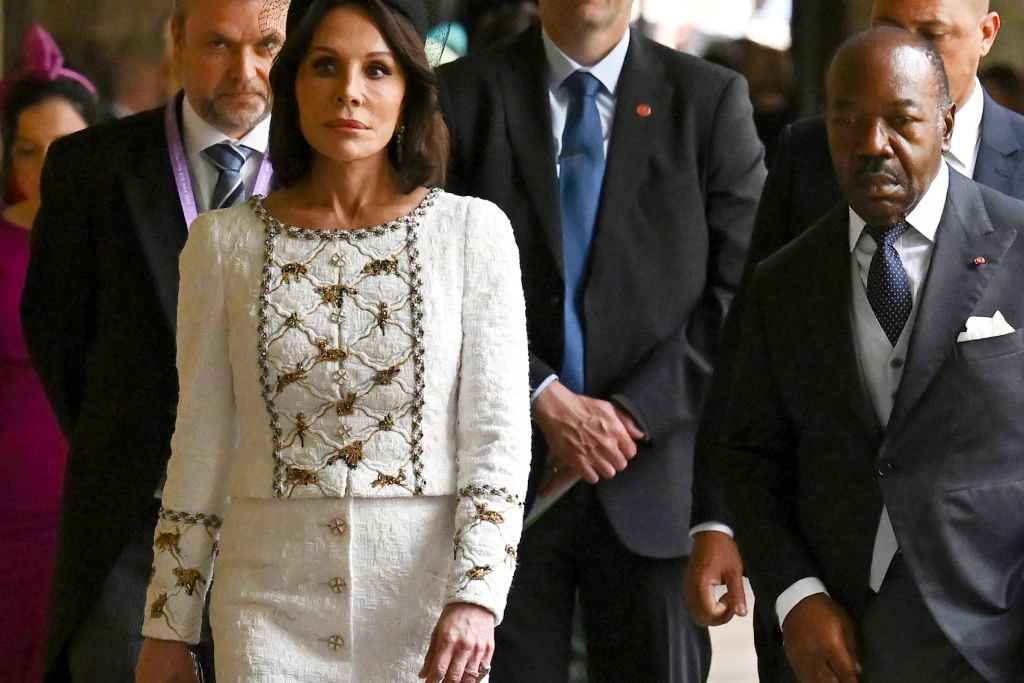
Ghanaian musician Kwabena Kwabena is worried that white women are preying on African footballers who play in European leagues.
His fears come on the back on allegations against compatriot Ghanaian midfielder Thomas Partey, who is facing some serious legal issues related to rape and sexual violence in England.
During an appearance on UTV’s United Showbiz, Kwabena Kwabena expressed concern over a recurring theme where promising African footballers, after achieving success abroad, enter into relationships with white partners and subsequently encounter significant personal turmoil.
“I don’t want to sound racist, but I would advise these young African men going overseas to play football to be cautious in their relationships with White women. Many of these players end up facing severe consequences, including issues like divorce, loss of property, and burdensome child support obligations. Unfortunately, these situations rarely end favourably,” observes Kwebena Kwebana.
For one of the alleged victims of Thomas Partey, the decision to try to extend Partey’s deal came as no surprise. For her, it was a reflection of Arsenal’s attitude over the previous three years. But, ultimately, Arsenal could not come to an agreement with Partey. He left the club on the expiration of his contract on June 30.
Within four days of his departure, he was charged with serious sexual offences. But at the time the charges became public, he was still listed on the club’s official website as an Arsenal player.
Arsenal have faced considerable scrutiny for continuing to play Partey during this period. As part of the writing of this story, The Athletic sent the club a number of questions. These included:
Was any decision made regarding reducing Partey’s media obligations?
Who made the decisions to continue playing Partey and enter into negotiations over a contract extension?
Arsenal declined to answer, citing the ongoing legal proceedings.
Alex Clarke, a senior employment lawyer at Onside Law, explains that opting to take action against a player accused of serious sexual offences would not be straightforward under current UK legislation.
“Even in cases involving the most serious allegations and understandable calls for players to be suspended, the way the standard Premier League playing contract is worded makes this difficult for clubs,” says Clarke.
“The standard Premier League contract has been collectively agreed with the PFA (Professional Footballers’ Association, the players’ union) over time and, as a result, contains some fairly player-friendly clauses. In terms of suspension, clubs can only suspend a player for a maximum of two weeks on full pay. There is no automatic right to withhold pay for any period of suspension or to extend the suspension beyond two weeks.”
Extending the suspension beyond the initial fortnight would need to be mutually agreed with the player — rather unlikely if said player maintains his innocence.
This situation differs from a standard employment contract. “The world of football generally doesn’t mesh well with employment law, and this is a very stark example,” adds Clarke.
As things stand, Premier League clubs do not have the power to suspend players without pay in cases of alleged severe misconduct, and changing that would require a renegotiation with the PFA.
Arsenal would also have given consideration to the fundamental legal principle that Partey is innocent until proven guilty.
“Arsenal also owed a duty of care to Partey as his employer and may have felt that any action they took against him would have undermined that duty, particularly as any suspension could be seen as Arsenal publicly implying that they consider him to be guilty,” explains Clarke. The club also needed to balance this against the duty of care it owed to its other employees, who may have felt uncomfortable around someone suspected of such serious offences, as well as safeguarding concerns that come with such serious allegations.
Although Arsenal may not have had the contractual right to suspend Partey without pay, the club confirmed to police that they had looked into the allegations, according to documents seen by The Athletic.
There is also a lack of clear guidance for clubs in these circumstances. Lisa Nandy, the UK’s Secretary of State for Culture, Media and Sport, expressed concern this week on the Sports Agents podcast that clubs do not have a “standard approach” when “very, very highly paid” players face claims of sexual assault.
After former Manchester City defender Benjamin Mendy was charged with rape and sexual assault in August 2021, he was suspended without pay from September 2021 until June 2023. Mendy was later cleared of all charges. In 2024, a judge determined that Mendy was entitled to the majority of his unpaid salary from City – everything except the amount owed during the five months he spent in custody – which came to around £8.5 million.
Had Arsenal taken action against Partey – and if he were later cleared – they could be financially liable. There would also be the reputational cost of punishing a player for a crime of which they were ultimately not guilty.
Instead, Arsenal opted to continue to play and promote a player facing such serious allegations.
There is another important question worth asking, however: did they have to play him? Football is a squad game – many players are regularly left out and their omission does not result in legal action. The likes of Mesut Ozil and Pierre-Emerick Aubameyang have previously spent protracted spells excluded from the team, seemingly without any significant consequence.
Was Partey’s ability as a footballer – and his value as an asset – given greater consideration than the moral and ethical implications of continuing to play him?
“There is no obligation on a club to pick a player for any match,” says Clarke. “For highly skilled employees like footballers, clubs are likely to be subject to an implied employment law duty to provide them with work to allow them to maintain their skills. However, as long as Arsenal allowed Partey to train and continued to pay him a wage, they would probably be satisfying that obligation.
“There are some FIFA regulations which may have given Partey a technical right to terminate his contract for what’s called ‘sporting just cause’ if Arsenal refused to play him at all during a full season, but this sort of claim would probably not have been in Partey’s interests given the nature of the allegations against him and the risk of making these more public.
“They may (also) have had in mind the perception this could have created that they believe Partey to be guilty in circumstances where he has maintained his innocence.”
In this instance, Arsenal may feel they have observed the letter of the law. Their compliance remains intact.
But Arsenal have other key tenets: culture, community, diversity and forward-thinking. This is a club that celebrates its women’s team, the current Champions League holders. It welcomes a diverse fanbase into its stands. Have those facets of the club’s identity been served in this case? On the club’s career page, it states that they “do the right thing (even when no one is looking)”.
When it comes to the handling of the Thomas Partey allegations, everyone is now looking. Legally, Arsenal may feel they have done the right thing. Morally and ethically, there are still questions to be answered.
- A Tell Media report / Originally published by The Athletic







